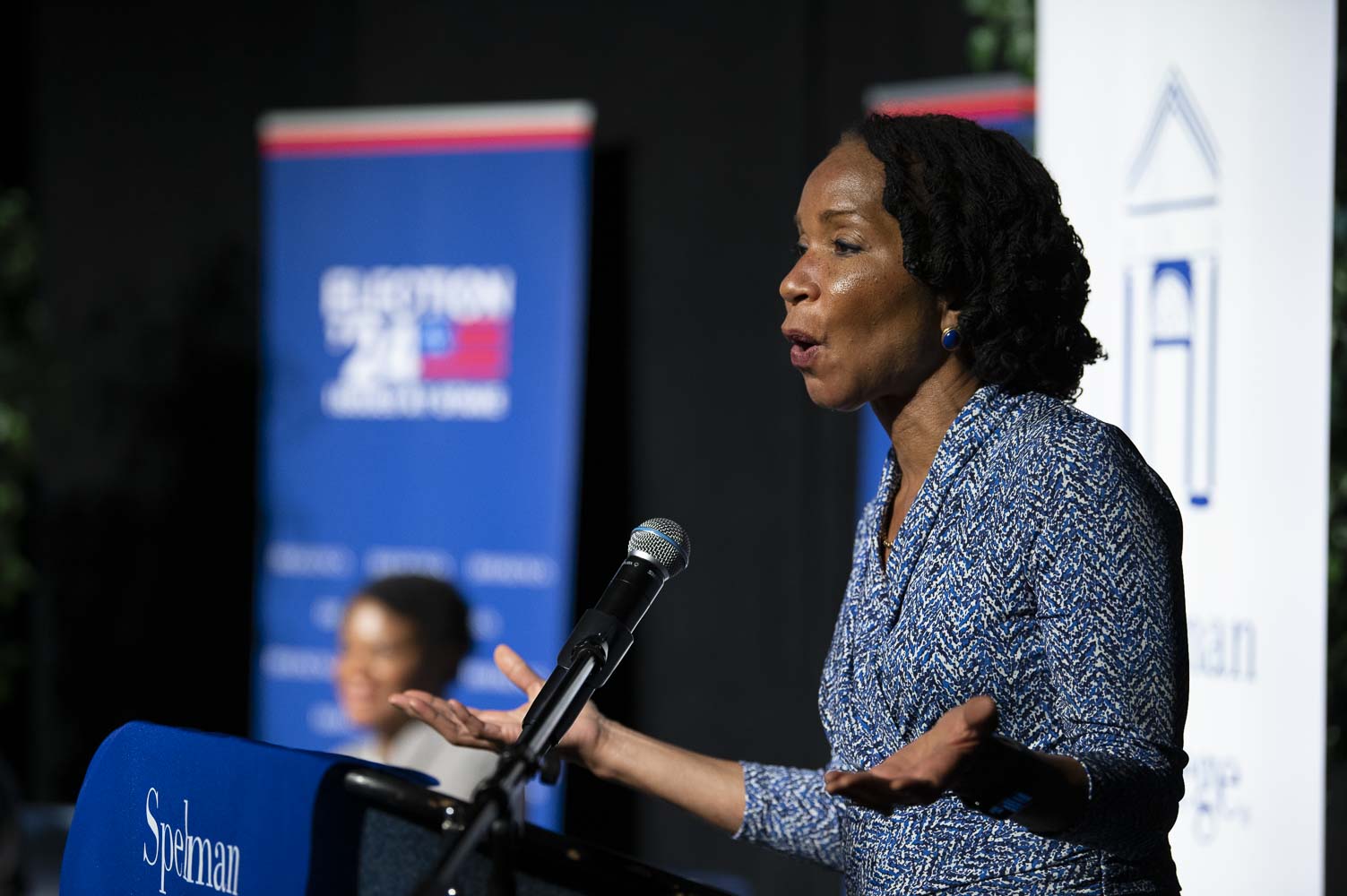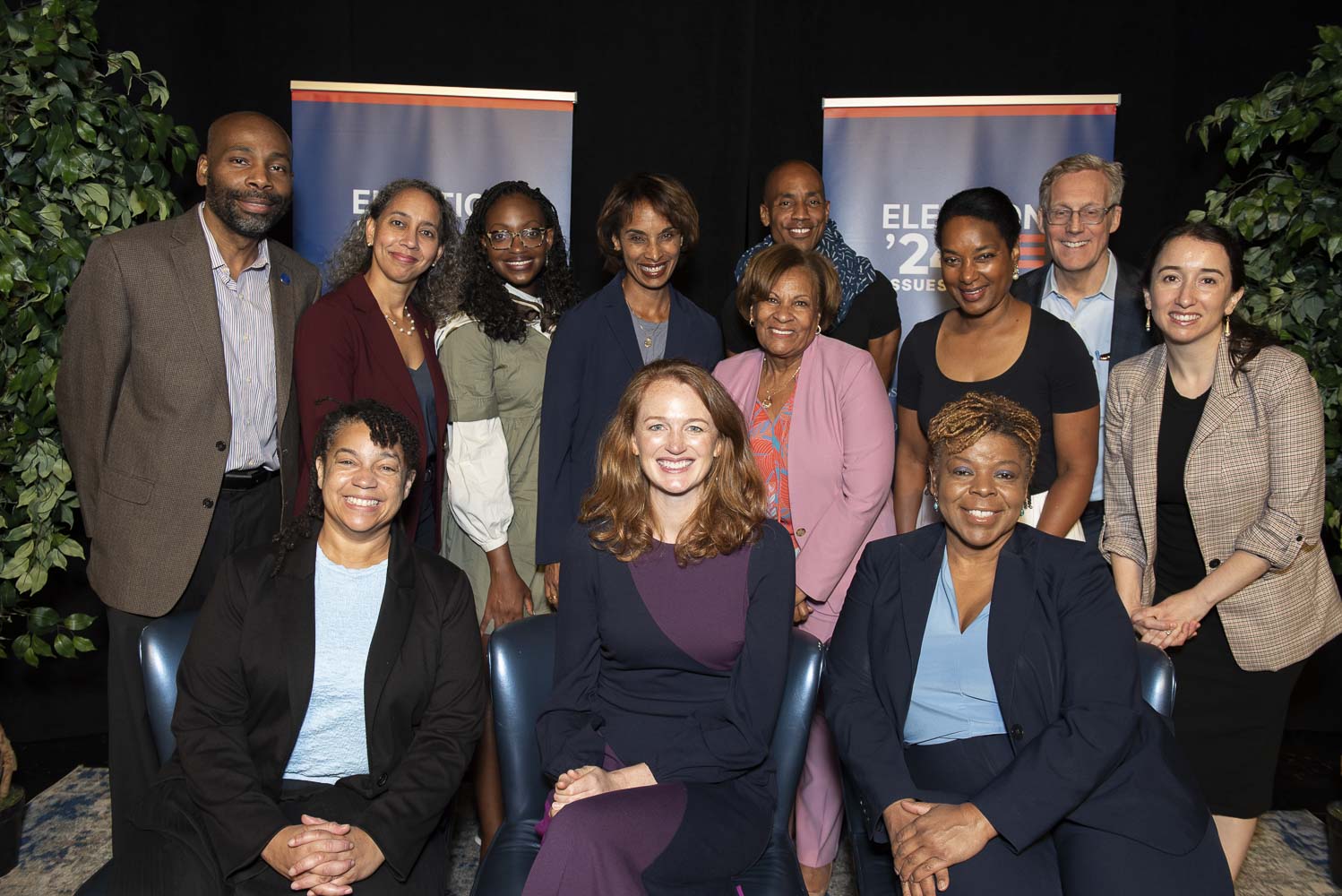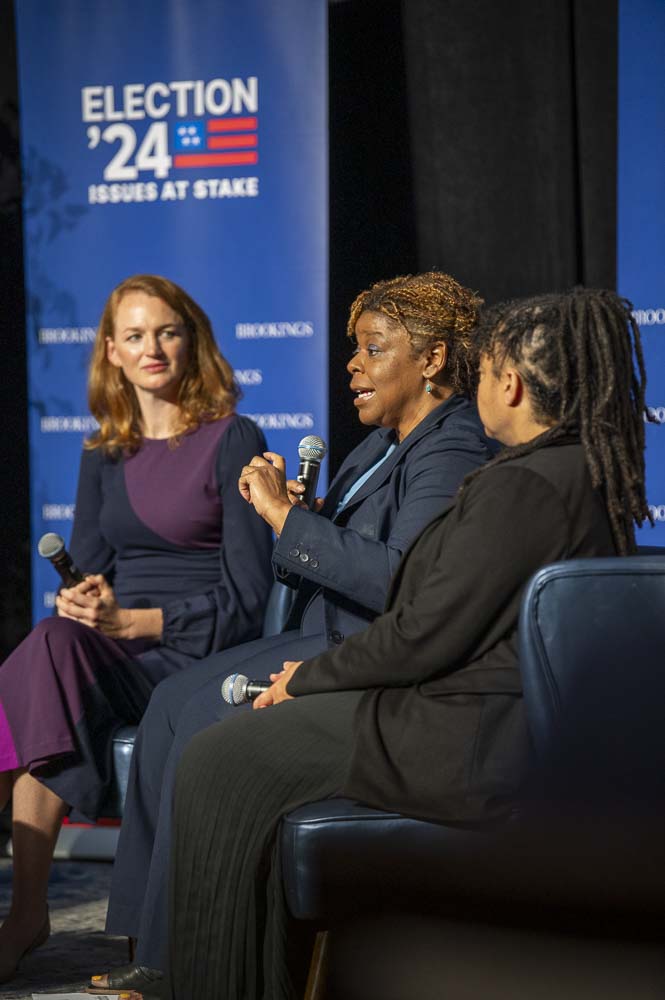Generative Artificial Intelligence (AI) is the latest advanced technology transforming society. Experts estimate that the rapid advance of AI could trigger a technological revolution that will impact global economies, governments, health care and more for centuries to come.
In response to the emerging technology, Spelman College partnered with The Brookings Institution, the number one think tank in the world, to take a proactive approach in assessing the impact of AI on the upcoming election and future legislation. In a two-day event titled “The promise and perils of AI: Issues at stake in the 2024 election,” leaders from Spelman and Brookings convened to discuss the guardrails and policies required to mitigate the potential risks that AI poses, especially to marginalized communities.
“As part of Spelman’s new strategic plan, we have put this issue of public policy, democracy and the role of technology as a high priority,” said Spelman President Dr. Helene D. Gayle. “We’re thrilled to think about how our voices as women of African descent, that have often been left out of the public policy arena, figure into these important conversations.”
 The event kicked off on September 9 with welcoming remarks from President Gayle, a Brookings trustee, and a fireside chat featuring Brookings President Dr. Cecilia Elena Rouse and Dr. Alondra Nelson, professor of social science for the Institute for Advanced Study and one of Time Magazine’s Most Influential People in AI. During the chat, Dr. Rouse and Dr. Nelson both acknowledged the complex ways that AI is impacting democracy across the world and emphasized the historical nature of the upcoming presidential election as the first since the introduction of generative AI.
The event kicked off on September 9 with welcoming remarks from President Gayle, a Brookings trustee, and a fireside chat featuring Brookings President Dr. Cecilia Elena Rouse and Dr. Alondra Nelson, professor of social science for the Institute for Advanced Study and one of Time Magazine’s Most Influential People in AI. During the chat, Dr. Rouse and Dr. Nelson both acknowledged the complex ways that AI is impacting democracy across the world and emphasized the historical nature of the upcoming presidential election as the first since the introduction of generative AI.
Dr. Nicol Turner Lee, senior fellow in the Center for Technology Innovation in the Governance Studies program at Brookings, opened the following day’s activities with a framing address to introduce the topic of generative AI. Dr. Turner Lee spoke to the many fields where AI has contributed to effective and successful outcomes by minimizing human error, including sectors like health care, education and manufacturing. Comparatively, she also acknowledged the areas of concern and the ways that bias can seep into technology and harm those it’s meant to benefit.
 “Algorithmic decisions can show up during this election in ways that facilitate gerrymandering and assist in predictive campaigning,” said Dr. Turner Lee. “We have not yet in Washington D.C. come up with any policies that help us to identify algorithmic manipulated election advertisements or ads that are AI generated.”
“Algorithmic decisions can show up during this election in ways that facilitate gerrymandering and assist in predictive campaigning,” said Dr. Turner Lee. “We have not yet in Washington D.C. come up with any policies that help us to identify algorithmic manipulated election advertisements or ads that are AI generated.”
The day culminated in two panel discussions: “Possible perils of AI: Disinformation, job loss and racial bias,” and “Possible benefits of AI: Innovation, efficiency and opportunity.” The panels were respectively moderated by Dr. Camille Busette, director of the Race, Prosperity, and Inclusion Initiative at Brookings, and Dr. Jerry Volcy, co-director of Spelman’s Innovation Lab. Each discussion reflected the dichotomy between the dangers and benefits of AI.
In the first panel, the panelists discussed the perils and shortcomings of AI, including language limitations, biases and the spread of deepfakes. In response to a question posed by the moderator, Professor and Chair of Spelman’s Computer and Information Sciences Department Dr. Raquel Hill explained how bias can make its way into technology and outlined the methods required to prevent AI from producing biased outputs.
“If we don’t have a diverse set of individuals that are making decisions about how information is being used and what information should be included, then we are leaving that process to an algorithm that is only looking at the statistical properties of data,” said Dr. Hill. “We all have to have a seat at the table when these conversations are being had so that there is oversight to the algorithm and the decision is not just left to the computation.”
The final panel focused on the benefits AI can bring to society and whether those opportunities warrant living with the risks it can pose. Panelists discussed ways that AI could be positively leveraged as a way to encourage innovation and enhancement of current systems, augment human performance and improve written communication.
 In response to both panels, Spelman students asked insightful questions that reflected their interest and hesitancy around the emerging technology. Psychology major Sheridan Lyles, C’2026, called attention to the already-prevalent gendered violence AI has posed against girls and women in the form of pornographic deepfakes, with Taylor Swift being a more recent, prominent example. She asked the panel what changes they expect to be made at the state or federal level regarding violence and AI.
In response to both panels, Spelman students asked insightful questions that reflected their interest and hesitancy around the emerging technology. Psychology major Sheridan Lyles, C’2026, called attention to the already-prevalent gendered violence AI has posed against girls and women in the form of pornographic deepfakes, with Taylor Swift being a more recent, prominent example. She asked the panel what changes they expect to be made at the state or federal level regarding violence and AI.
“There are many opportunities for Black policymakers and policymakers in general to understand the issues around AI and advocate heavily for them,” said Dr. Chinasa Okolo, Center for Technology Innovation fellow at Brookings. “In the next year, AI will have a very big role to play within Congress and other areas of government as the U.S. hopefully leans toward a federal AI law.”
To view the full sessions, visit brookings.edu.
[Images by Julie Yarbrough]